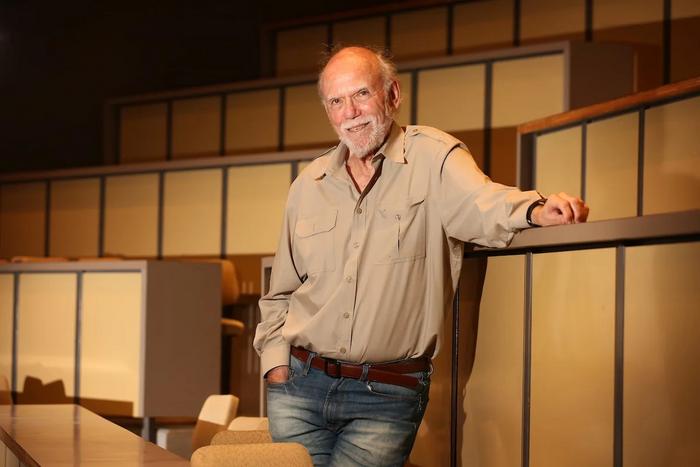RIVERSIDE, Calif. — Physicist Barry C. Barish, a distinguished professor of physics and astronomy at UC Riverside, was awarded the National Medal of Science by President Joe Biden at a ceremony held at the White House today. Established in 1959 by the U.S. Congress, the National Medal of Science is the highest recognition the nation can bestow on scientists and engineers.

Credit: Stan Lim, UC Riverside.
RIVERSIDE, Calif. — Physicist Barry C. Barish, a distinguished professor of physics and astronomy at UC Riverside, was awarded the National Medal of Science by President Joe Biden at a ceremony held at the White House today. Established in 1959 by the U.S. Congress, the National Medal of Science is the highest recognition the nation can bestow on scientists and engineers.
The President’s National Medal of Science is given to individuals “deserving of special recognition by reason of their outstanding contributions in biology, computer sciences, education sciences, engineering, geosciences, mathematical and physical sciences, and social, behavioral, and economic sciences, in service to the Nation.” It is administered by National Science Foundation.
Barish was recognized for “exemplary service to science, including groundbreaking research on sub-atomic particles. His leadership of the Laser Interferometer Gravitational-Wave Observatory led to the first detection of gravitational waves from merging black holes, confirming a key part of Einstein’s Theory of Relativity. He has broadened our understanding of the universe and our Nation’s sense of wonder and discovery.”
“UCR congratulates Prof. Barish on receiving the National Medal of Science,” said UCR Chancellor Kim A. Wilcox. “The distinguished names of previous winners make this recognition very exceptional. Prof. Barish is a strong inspiration for our students, researchers, and faculty. UCR continues to benefit from his extraordinary achievements.”
Barish won the 2017 Nobel Prize in physics for the discovery of gravitational waves. He joined the UCR faculty in 2018. He earned his bachelor’s degree in physics in 1957 and his doctorate in experimental particle physics in 1962, both from from UC Berkeley. He joined Caltech as a postdoc in 1963, became a professor in 1966, and was appointed Linde Professor of Physics in 1991. He led the Laser Interferometer Gravitational-wave Observatory, or LIGO, effort from its inception through the final design stages, and in subsequent discoveries. In 1997, he created the LIGO Scientific Collaboration, which enables more than 1,000 collaborators worldwide to participate in LIGO.
Barish has served on many committees, including co-chairing the subpanel of the High Energy Physics Advisory Panel that developed a long-range plan for U.S. high-energy physics in 2001. He chaired the Commission of Particles and Fields and the U.S. Liaison Committee to the International Union of Pure and Applied Physics.
He is the recipient of the Fudan-Zhongzhi Science Award (China), Princess of Asturias Prize for Science and Technology (Spain), Giuseppe and Vanna Cocconi Prize from the European Physical Society, the Enrico Fermi Prize from the Italian Physical Society, and the Klopsteg Award from the American Association of Physics Teachers. He is a member of the National Academy of Sciences, which awarded him the Henry Draper Medal. From 2003 to 2010, he served as a presidential appointee to the National Science Board.
He is an elected member of the American Academy of Arts and Sciences and a fellow of both the American Association for the Advancement of Science and of the American Physical Society, where he also served as president. He has received honorary doctorates from the University of Bologna, University of Florida, University of Glasgow, and Universitat de València in Spain. He has been inducted as honorary academician into the Royal Academy of European Doctors, based in Spain. He was elected a foreign member of the Royal Society in 2019. Last year, he won the Copernicus Prize, bestowed by the government of Poland. Earlier this year, he was elected a corresponding member of the Royal Academy of Sciences and Arts of Barcelona.
The University of California, Riverside is a doctoral research university, a living laboratory for groundbreaking exploration of issues critical to Inland Southern California, the state and communities around the world. Reflecting California’s diverse culture, UCR’s enrollment is more than 26,000 students. The campus opened a medical school in 2013 and has reached the heart of the Coachella Valley by way of the UCR Palm Desert Center. The campus has an annual impact of more than $2.7 billion on the U.S. economy. To learn more, visit www.ucr.edu.




